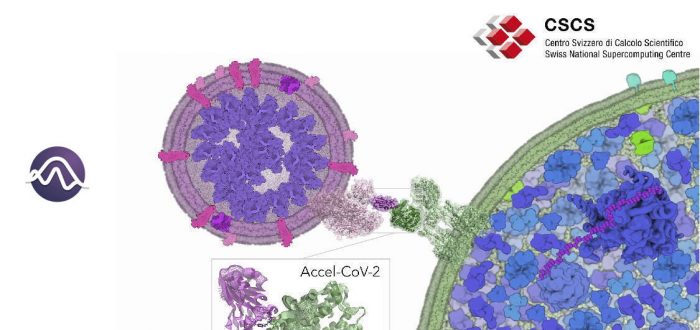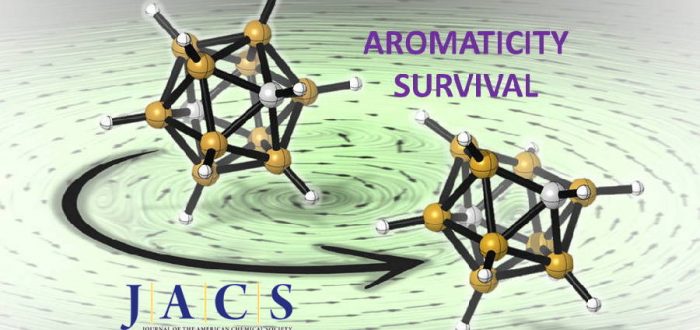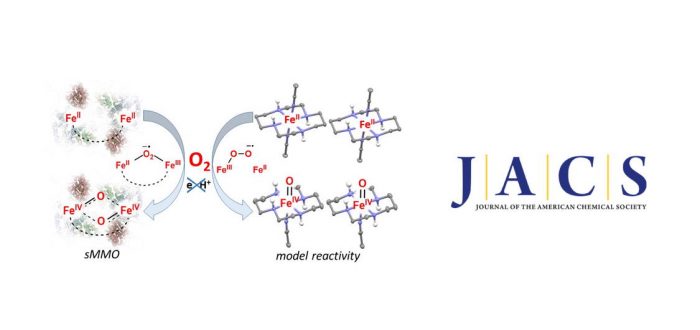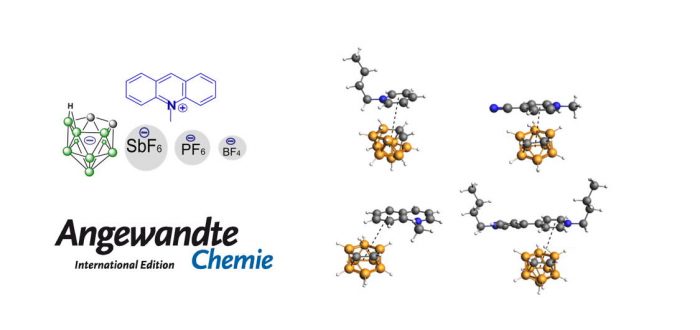A team of researchers from IQCC has been awarded computational time at the Piz Daint supercomputer of the ETH Zurich/CSCS (Switzerland) to explore the molecular and dynamical SARS-CoV-2/hACE2 recognition and inhibition mechanisms. In the framework of the Accel-CoV-2 project, the team will perform extensive accelerated Molecular Dynamics (aMD) simulations to access millisecond motions that can be
- sec.iqcc@udg.edu
- +34 972 41 83 57
News
Predictability is a key requirement to encompass late-stage C-H functionalization in synthetic routes. However, prediction (and control) of reaction selectivity is usually challenging, especially for complex substrate structures and elusive transformations such as remote C( sp 3 )-H oxidation, as it requires to distinguish a specific C-H bond from many others with similar reactivity. Herein,
Whereas the aromaticity of closo boranes is widely accepted, less is known about the aromaticity of nidoboranes. This work carried out by Prof. Francesc Teixidor, Prof. Clara Viñas, and Dr. Ines Bennour of the Institute of Materials Science of Barcelona (ICMAB-CSIC), Prof. Jordi Poater at the University of Barcelona (previous DiMoCat member) and Sílvia Escayola and
The decay mechanism of S0 ? S1 excited cytosine (Cyt) and the effect of substitution are studied combining jet-cooled spectroscopy (nanosecond resonant two-photon ionization (R2PI) and picosecond lifetime measurements) with CASPT2//CASSCF computations for eight derivatives. For Cyt and five derivatives substituted at N1, C5, and C6, rapid internal conversion sets in at 250–1200 cm–1 above
Steroidal C7beta alcohols and their respective esters have shown significant promise as neuroprotective and anti-inflammatory agents to treat chronic neuronal damage like stroke, brain trauma and cerebral ischemia. Since position C7 is spatially far away from any functional groups that could direct C–H activation, these transformations are not readily possible using modern synthetic organic techniques.
Today the European Research Council announced the grantees of their ERC Advanced Grants, among which featured our Miquel Costas (ICREA Academia) with his “Enantioselective C-H Oxidation Guided by Rational Catalyst Design” project. This five-year project will enable him to continue on his excellent path to understanding in great detail the secrets of C-H oxidation chemistry. Congratulations
Today the Human Frontier Science Program has announced the list of the awardees in the latest 2020 call, among which featured our Sílvia Osuna (ICREA) with a research project on “the evolution of conformational and kinetic ensembles during functional transitions” (RGP0054/2020). The team of the project is composed by Prof. Tokuriki (grant coordinator, University of
Site-selective and product chemoselective aliphatic C–H bond oxidation of 1,2-diols and of polyhydroxylated substrates using iron and manganese catalysts and hydrogen peroxide as terminal oxidant is described. The reaction capitalizes on the use of fluorinated alcohol solvents such as 2,2,2-trifluoroethanol (TFE) and 1,1,1,3,3,3-hexafluoro-2-propanol (HFIP), which exert a strong polarity reversal in the hydroxyl moieties of
In soluble methane monooxygenase enzymes (sMMO) dioxygen (O2) is activated at a diiron(II) center to form an oxodiiron(IV) intermediate Q that performs the challenging oxidation of methane to methanol. An analogous mechanism of O2 activation at mono- or di-nuclear iron centres is rare in the synthetic chemistry. Herein, we report a mononuclear non-heme iron(II)-cyclam complex
Exploration and comprehension of chemical bonding is one of the central tasks in chemistry. Here, a non-covalent interaction, a nido-cage···? bond, is discovered in a collaborative work between Deshuang Du and Prof. Yan from Nanjing University and Prof. Jordi Poater at the University of Barcelona (ex-IQCC) and Prof. Miquel Solà of IQCC (Univ. Girona). The










